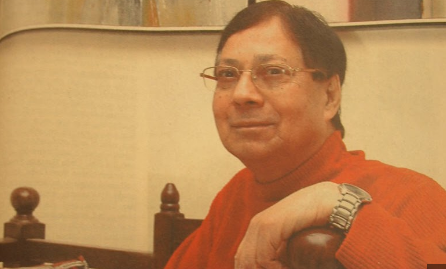Lahore (Web Desk/Agencies): The 9th death anniversary of renowned actor and playwright Kamal Ahmed Rizvi was observed on Tuesday.
Born in 1930 in Bihar, India, Rizvi’s life was one of movement and transformation. After the partition in 1947, his family migrated to Karachi.
Later Rizvi moved to Lahore, where he became immersed in the city’s vibrant artistic community.
His deep connection to the literary world, marked by interactions with towering figures such as Sadat Hasan Manto, shaped his creative sensibilities.
Rizvi’s intellectual pursuits were not confined to acting alone. A man of letters, he translated several English works into Urdu and contributed prolifically to magazines.
Yet, it was in the realm of theatre where his true mettle was tested. By the late 1950s, he began writing both original plays and adaptations, leaving behind a body of work that continues to resonate today.
Among his notable plays were Badshahat Ka Khatma, Julius Caesar, Hum Sub Pagal Hain, and Bulaqi Badzaat, each showcasing his deft ability to blend wit with profound social commentary.
When television became operational in Lahore, Rizvi embraced this new medium in 1965 with characteristic enthusiasm and brilliance. He wrote and starred in Alif Noon, a satirical drama that quickly became a cultural landmark.
Through its humorous lens, the show critiqued the hypocrisies and contradictions of society, with Rizvi’s portrayal of Allan—a cunning and devious character—as a central piece of its success. His foil in the drama, Rafi Khawar’s Nanha, brought a contrasting innocence to the duo, and their on-screen chemistry became iconic.
Throughout his career, Rizvi’s talents were recognized by the highest echelons of the state.
In 1989, he was honoured with the Pride of Performance Award, cementing his place as one of the most influential cultural figures of his time.
He died on December 17, 2015, at the age of 85.
Even today, Kamal Ahmed Rizvi’s legacy endures, not only in the plays and performances he left behind but in the broader cultural consciousness of the nation he helped shape.


